-
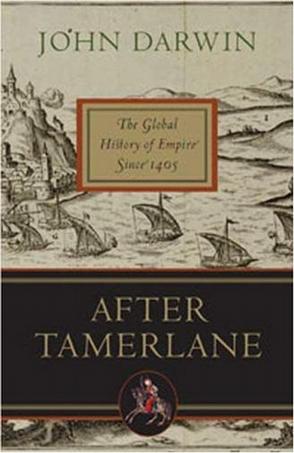
After Tamerlane
Was Europe's domination of the modern international order the inevitable rise of a superior civilization or the piratical hijacking of an evolving world system? A little of both, and a lot of neither, this ambitious comparative study argues—because world history's real center of gravity sits in Eurasia. Historian Darwin (The End of the British Empire) contends that an ascendant Western imperialism was a sideshow to vast, wealthy and dynamic Asian empires—in China, Mughal India, the Ottoman Middle East and Safavid Iran—which proved resistant to Western encroachment and shaped the world into the 21st century. Europe's overseas colonial empires as well as the expansions of the United States across North America and Russia across Siberia—was not inevitable, but rather a slow, fitful and often marginal enterprise that didn't accelerate until the mid-19th century. Darwin analyzes the technological, organizational and economic advantages Europeans accrued over time, but shows how dependent their success was on the vagaries of world trade (the driving force of modern imperialism, in his account) and the internal politics of the countries they tried to control. Nicely balanced between sweeping overview and illuminating detail, this lucid survey complicates and deepens our understanding of modern world history. -
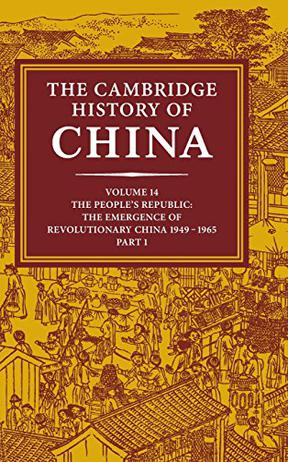
The Cambridge History of China, Vol. 14
A century of revolutionary upheaval in China reached a climax in 1949 with the creation of the People's Republic. A central government had now gained full control of the Chinese mainland, thus achieving the national unity so long desired. Moreover, this central government was committed for the first time to the overall modernization of the nation's polity, economy, and society. This is the first of the two final volumes of The Cambridge History of China, which describe the efforts of the People's Republic of China to grapple with the problems of adaptation to modern times. Volume 14 deals with the achievements of the economic and human disasters of the new regime's first sixteen years (1949-65). Part I chronicles the attempt to adapt the Soviet model of development to China, and Part II covers the subsequent efforts of China's leaders to find native solutions that would provide more rapid and appropriate answers to China's problems. Each of the two parts of the volume analyzes the key issues and developments in the spheres of politics, economics, culture, education, and foreign relations. The contributors, all leading scholars of the period, show the interrelation of Chinese actions in all these spheres, and the describe how, gradually, events led to the Cultural Revolution launched by Mao Tse-tung in 1966. -
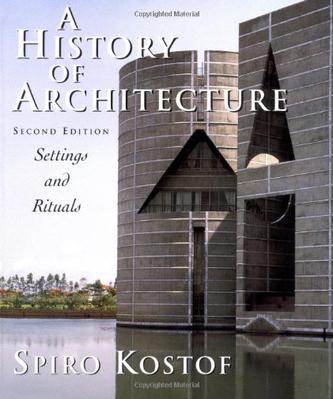
A History of Architecture
No mere survey of famous buildings, Kostof's History examines an inclusive spectrum of manmade structures: prehistoric huts and the TVA, the pyramids at Giza and the Rome railway station, the ziggurat and the department store. Indeed, Kostof considered every building worthy of attention, every structure or shelter a potential source of insight, whether it be the prehistoric hunting camps at Terra Amata, or the caves at Lascaux with their magnificent paintings, or a twenty-story hotel on the Las Vegas strip. The Second Edition features a new concluding chapter, "Designing the Fin-de-Siecle, " based on Kostof's last lecture notes and prepared by Castillo, as well as an all-new sixteen-page color section. Many of the original line drawings by Richard Tobias, as well as some fifty photographs, have also been updated or replaced, for improved clarity. -
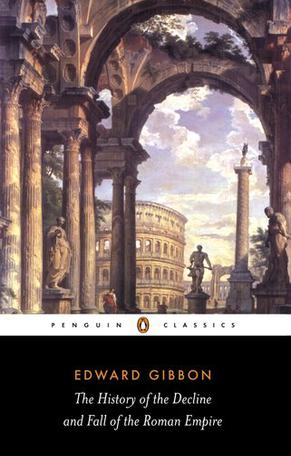
The History of the Decline and Fall of the Roman Empire
In the greatest work of history in the English language, Edward Gibbon compresses thirteen turbulent centuries into a gripping epic narrative. It is history in the grand eighteenth-century manner, a well-researched drama charged with insight, irony, and incisive character analysis. In elegant prose, Gibbon presents both the broad pattern of events and the significant revealing detail. He delves into religion, politics, sexuality, and social mores with equal authority and aplomb. While subsequent research revealed minor factual errors about the early Empire, Gibbon's bold vision, witty descriptions of a vast cast of characters, and readiness to display his own beliefs and prejudices result in an astonishing work of history and literature, at once powerfully intelligent and enormously entertaining. Based on David Womersley's definitive three-volume Penguin Classics edition of The Decline and Fall of the Roman Empire , this abridgement contains complete chapters from all three volumes, linked by extended bridging passages, vividly capture the style, the argument, and the architecture of the whole work. -
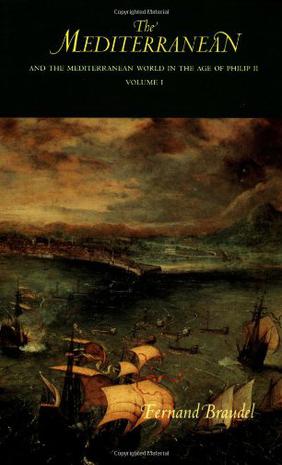
The Mediterranean and the Mediterranean World in the Age of Philip II
The focus of Fernand Braudel's great work is the Mediterranean world in the second half of the sixteenth century, but Braudel ranges back in history to the world of Odysseus and forward to our time, moving out from the Mediterranean area to the New World and other destinations of Mediterranean traders. Braudel's scope embraces the natural world and material life, economics, demography, politics, and diplomacy. -
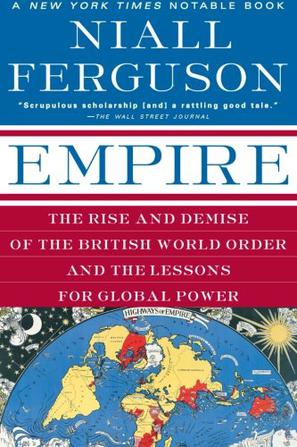
Empire
"A splendid history.... If Americans want to be convinced of the benefits of empire, as well as apprised of its costs, they need merely pick up Ferguson's dazzling book." -- Weekly Standard The British Empire was the largest in all history: the nearest thing to world domination ever achieved. By the eve of World War II, around a quarter of the world's land surface was under some form of British rule. Yet for today's generation, the British Empire seems a Victorian irrelevance. The time is ripe for a reappraisal, and in Empire , Niall Ferguson boldly recasts the British Empire as one of the world's greatest modernizing forces. An important new work of synthesis and revision, Empire argues that the world we know today is in large measure the product of Britain's Age of Empire. The spread of capitalism, the communications revolution, the notion of humanitarianism, and the institutions of parliamentary democracy-all these can be traced back to the extraordinary expansion of Britain's economy, population, and culture from the seventeenth century until the mid-twentieth. On a vast and vividly colored canvas, Empire shows how the British Empire acted as midwife to modernity. Displaying the originality and rigor that have made him the brightest light among British historians, Ferguson shows that the story of the Empire is pregnant with lessons for today-in particular for the United States as it stands on the brink of a new era of imperial power, based once again on economic and military supremacy. A dazzling tour de force, Empire is a remarkable reappraisal of the prizes and pitfalls of global empire.